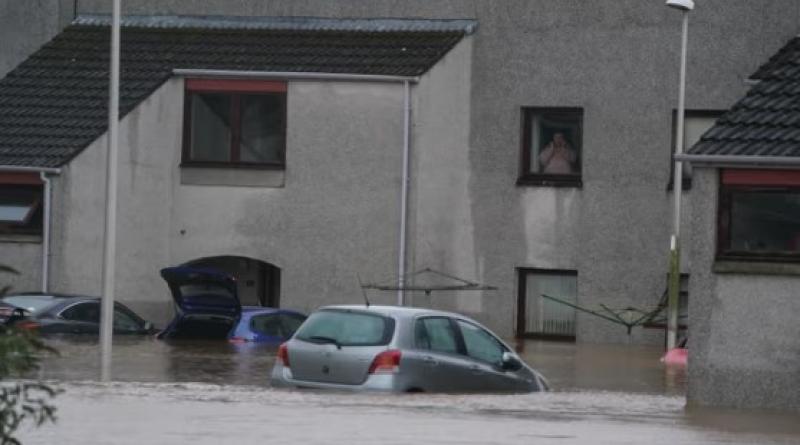Of course working-class people care about the climate crisis: they emit the least, but will suffer most

The implications of policy are felt very differently depending on how well-off you are. It’s time for politicians to recognise this
Many of Rishi Sunak’s political decisions are baffling, but one that’s easy to understand is his recent rowing back from the UK’s climate commitments: he, like many creatures of Westminster, thinks working-class people don’t care much for climate action. This is a lazy stereotype and, predictably, did nothing for his poll numbers.
The simple truth is this: when it comes to the climate crisis, working-class people are often the first to spot the changes occurring because even slight fluctuations can make or break family finances. That doesn’t mean this is the first subject working-class people raise when a canvasser knocks at the door or a pollster asks, but it is there in the background when deciding who to trust with our futures.
It’s the people who think twice before turning on a fan or know their homes aren’t fully insured who are most attuned to the fact that summers are getting hotter and the rain is increasingly heavier than their drains can cope with. If you use the calculator app when you shop to avoid embarrassment at the tills, you have a keener sense that flooded farmers’ fields today mean higher food prices tomorrow.
Above all, working-class people know they have done far less to contribute to our national emissions than those in the private-jet class or the investment managers who have grown rich on fossil fuel. It is therefore unsurprising that many working-class people are slightly suspicious of a climate movement that seems to be whiter and more middle-class than the communities on the sharpest end of climate consequences.
I’m nobody’s idea of a climate radical. I had spent my career working for charities that fight for families on low incomes and tackle inequality, driven by growing up in a council house and seeing my mum struggle (as many more people are sadly doing today). I have never forgotten how tough we had it growing up, so I am determined that working-class families like the one I grew up in won’t bear the brunt of the climate crisis. That’s why my new organisation, Round our Way, highlights the impact the climate crisis is having on working-class communities today, and gets more of our voices into the debate about what we do about it.
This isn’t abstract or something to worry about in the future: the implications are showing up right now in everyday life. Last year, for example, research by the Energy and Climate Intelligence Unit (ECIU) found the average food bill was £400 higher thanks to climate impacts and fossil-fuel costs. Working-class communities are significantly more likely to be flooded, and have less money and insurance to weather the storms.
And later this week, Round our Way will be jointly publishing research showing that community and lower-league football clubs, such as Whitby Town, are facing huge bills to cope with the wetter weather that the climate crisis brings. Whole communities are changing because of this.
Given all of this, we shouldn’t be surprised that polling last month by More in Common found what the group calls “loyal nationals” (a term for “red wall” voters) had the climate crisis and the environment fourth on their list of priorities. Politicians have got it wrong if they think attacking climate action presents an easy path to popularity.
All of this is good news for those of us who want to see a fairer and greener future, but this cross-class consensus on climate action is fragile and needs reinforcement. Plenty of working-class people worry that climate policies won’t be applied fairly, and we need only look to recent experiences in Germany to see how quickly things can go badly wrong. There, proposals to ban new gas boilers and replace them with green options created huge splits in the governing coalition over whether enough was being done to help people on modest incomes.
Climate politics curdle when one of two things happen. The first is when effective populists pose as working-class champions. You can spot these fairweather class warriors by the speed at which working-class concerns become their calling card only when climate action is proposed. They are the people who don’t say a word when the youth club closes, job cuts are made or bills spiral, but you can’t get them off news programmes when they can use our worries as a stick to beat the climate consensus.
The second is when the actual climate movement becomes dominated by people whose lives are sufficiently comfortable that they don’t think about the distributional consequences of policy, or recognise that its implications will be felt very differently depending on how well off you were to start with.
Thankfully, both these problems have the same solution. A climate movement of and for ordinary people is the foundation on which a durable climate consensus can be built. That’s what Round our Way is doing. If you are ever tempted to think people can’t simultaneously focus on the daily slog and the future, remember all the heroic single mums battling every day to keep their families afloat precisely because they want a future where their kids won’t have to do the same.
-
Roger Harding is the founding director of Round our Way
Photograph: Andrew Milligan/PA - ‘This isn’t about the future: the implications are showing up right now.’ Floods in Brechin, Scotland, caused by Storm Babet, 20 October 2023.





